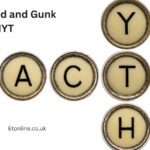Introduction To Absolute Junk NYT
In the world of media and journalism, few things carry as much weight as a harsh critique from a reputable source like the New York Times (NYT). When the NYT labels a product or service as “absolute junk,” it can have far-reaching consequences. This article delves into the significance of such strong criticism, exploring how it shapes public opinion, impacts businesses, and what it means for the broader market.
The New York Times (NYT) crossword puzzle is a beloved challenge for puzzle enthusiasts, offering a perfect blend of wit, wordplay, and occasional frustration. One clue that might stump solvers is “Absolute Junk.” This article will break down the possible interpretations and answers to this clue, providing you with the tools and insights you need to solve it effectively.
The Nature of Crossword Clues: Understanding “Absolute Junk”
Crossword clues can be tricky, often requiring solvers to think beyond the literal meaning of the words. The phrase “Absolute Junk” could be interpreted in several ways, depending on the context of the puzzle and the clue’s placement.
Exploring the Literal and Figurative Meanings
“Absolute Junk” is a phrase that might refer to something of extremely poor quality or worthlessness. It can be used both literally, to describe physical objects, and figuratively, to describe concepts, statements, or even performances. In crossword puzzles, clues like this one often play on these dual meanings.
Potential Synonyms for “Absolute Junk”
When faced with a clue like “Absolute Junk,” it helps to think of synonyms or related phrases that might fit the crossword’s grid. Some possible answers include:
- Trash: A common term for something worthless or of poor quality.
- Rubbish: Often used interchangeably with trash, particularly in British English.
- Crap: A colloquial term that might be used in a more informal puzzle.
- Garbage: Another word for waste or something worthless.
- Dross: A term that refers to something regarded as worthless or of inferior quality.
Given the NYT crossword’s tendency to favor words that are both common and versatile, “Trash” or “Crap” might be the most likely answers.
Why “Trash” is a Likely Answer for “Absolute Junk”
Of the potential answers, “Trash” stands out as a strong candidate for several reasons:
- Word Length: “Trash” is a five-letter word, fitting common crossword answer lengths.
- Common Usage: “Trash” is widely used in both American and British English to describe something worthless.
- Crossword Frequency: “Trash” frequently appears in crossword puzzles due to its simplicity and broad applicability.
Alternative Answers Based on Context
If “Trash” doesn’t fit the puzzle’s grid, consider the following alternatives:
- Crap: If the puzzle leans towards a more informal tone, “Crap” could be a valid answer.
- Dross: Though less common, “Dross” might be used in a puzzle with a more sophisticated or literary theme.
- Rubbish: Particularly if the puzzle has a British influence, “Rubbish” might be the answer.
Strategies for Solving the “Absolute Junk” Clue
Solving crossword clues like “Absolute Junk” requires a mix of vocabulary knowledge, contextual analysis, and puzzle-solving techniques. Here are some strategies to help you crack this clue:
1. Analyze the Crossword Puzzle’s Theme
The theme of the puzzle can provide valuable hints. For example, if the puzzle focuses on waste or environmental issues, “Trash” might be the answer. If the theme is more colloquial or informal, “Crap” could be a better fit.
2. Consider Word Length and Intersecting Clues
Always check the number of boxes available for the answer. If the word length matches “Trash,” and the intersecting clues support it, you’re likely on the right track. Cross-referencing with other answers can also confirm whether “Trash” or another synonym is correct.
3. Reflect on the Puzzle’s Tone and Language
The NYT crossword often incorporates a blend of formal and informal language. If the puzzle uses more sophisticated vocabulary, “Dross” might be the answer. Conversely, a casual puzzle might lead you to “Crap” or “Trash.”
4. Expand Your Vocabulary
Expanding your vocabulary is key to solving challenging crossword puzzles. Familiarize yourself with synonyms and related terms, especially those that frequently appear in crosswords. This will help you recognize possible answers quickly.
The Role of “Absolute Junk” in Crossword Puzzles
The phrase “Absolute Junk” doesn’t just challenge your vocabulary; it also encourages you to think critically about the language and how words can be used in different contexts. Crossword puzzles are designed to test your knowledge, wordplay skills, and ability to think outside the box.
Crossword Puzzles as a Language Learning Tool
Crosswords are excellent for language learning, as they force you to engage with synonyms, idioms, and lesser-known words. Clues like “Absolute Junk” push solvers to expand their vocabulary and understanding of nuanced language.
The Satisfaction of Solving Complex Clues
There’s a particular satisfaction in solving a challenging crossword clue, especially one with multiple potential answers like “Absolute Junk.” The process of elimination, coupled with your growing knowledge of crossword strategies, leads to a rewarding puzzle-solving experience.
Frequently Asked Questions
What is the most common answer to the “Absolute Junk” NYT crossword clue?
The most common answer is “Trash,” which refers to something of no value or poor quality.
Are there alternative answers to “Absolute Junk”?
Yes, alternatives might include “Crap,” “Rubbish,” or “Dross,” depending on the puzzle’s theme and language style.
Why is “Trash” frequently used in crossword puzzles?
“Trash” is a versatile, five-letter word that fits well in crossword grids and is widely recognized in both American and British English.
How can I improve my crossword puzzle-solving skills?
Regular practice, expanding your vocabulary, and understanding the nuances of crossword clues are key to improving your skills.
What should I consider when solving the “Absolute Junk” clue?
Consider the theme of the puzzle, the length of the answer, and the intersecting clues. Reflect on the tone of the puzzle to determine whether a formal or informal answer is appropriate.
How does solving crossword puzzles benefit cognitive function?
Crossword puzzles improve memory, problem-solving skills, and cognitive flexibility, making them an excellent mental exercise.
Conclusion
The “Absolute Junk” NYT crossword clue challenges solvers to consider various interpretations and synonyms, with “Trash” often emerging as the most likely answer. By understanding the context and applying strategic crossword-solving techniques, you can confidently tackle this and similar clues. Whether you’re a seasoned crossword enthusiast or a beginner, the key to success lies in expanding your vocabulary, practicing regularly, and embracing the learning process. With these tools at your disposal, solving even the trickiest crossword clues becomes a rewarding experience.
Also Read : The Disapproving Cluck NYT: Understanding Its Significance
FAQs
What does it mean when the New York Times calls something “absolute junk”?
When the NYT labels a product or service as “absolute junk,” it means that the offering is considered to be of extremely poor quality, lacking in value, and not worth consumers’ time or money.
How can a negative review from the NYT impact a business?
A negative review from the NYT can lead to decreased sales, loss of consumer trust, and potentially long-term damage to a brand’s reputation. Businesses must respond quickly and effectively to mitigate these effects.
What should a company do if it receives a bad review from a major publication?
If a company receives a bad review, it should first acknowledge the criticism, address the issues raised, and communicate openly with its customers. Taking corrective actions and demonstrating a commitment to improvement can help rebuild trust.
Can negative press ever be beneficial?
In some cases, negative press can be beneficial if it prompts a company to make necessary changes or improvements. By addressing the criticism head-on, a company can turn a negative situation into an opportunity for growth.
How does the NYT decide what products or services to review?
The NYT selects products and services for review based on their relevance, consumer interest, and market impact. Reviews are conducted by experts who thoroughly test and evaluate the offerings.
Why do some products get labeled as “absolute junk”?
Products may be labeled as “absolute junk” if they fail to meet basic quality standards, do not deliver on their promises, or are found to be deceptive or poorly made. This label is a strong indication that the product is not worth purchasing.



